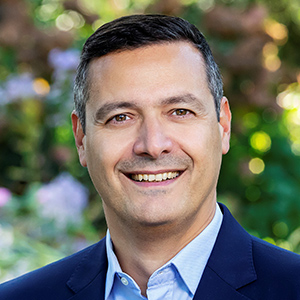We discuss how process systems engineering (PSE) studies can facilitate the development of novel strategies for the production of renewable fuels and chemicals. Importantly, we show how PSE can be used to identify technological and economic drivers, and, ultimately, guide future research efforts. After an overview of the methods used for these studies, we discuss the synthesis and analysis of two broad classes of strategies: (1) biomass-to-fuels/chemicals systems and (2) systems that employ solar energy for power and fuels generation.

Finally, we discuss how the synthesis of integrated renewable energy systems leads, naturally, to new types of problems for which traditional approaches are insufficient; and outline progress towards the development of novel methods to address these challenges.
Christos Maravelias is the Chair of the Department of Chemical and Biological Engineering and the Anderson Family Professor in Energy and the Environment at Princeton University. Before joining Princeton, he was the Vilas Distinguished Achievement Professor at the Department of Chemical and Biological Engineering at the University of Wisconsin – Madison, USA. Christos obtained his Diploma in Chemical Engineering at the National Technical University of Athens, an MSc in Operational Research from the London School of Economics (London, UK), and a Ph.D. from Carnegie Mellon University. His research interests lie in the general area of process and energy systems engineering and optimization. Specifically, he is studying production planning and scheduling, supply chain optimization, and chemical and energy systems synthesis and analysis with emphasis on renewable energy technologies.
CBEGSO reception with light refreshments will be held in the Hesburgh Library Scholars Lounge prior to the seminars.